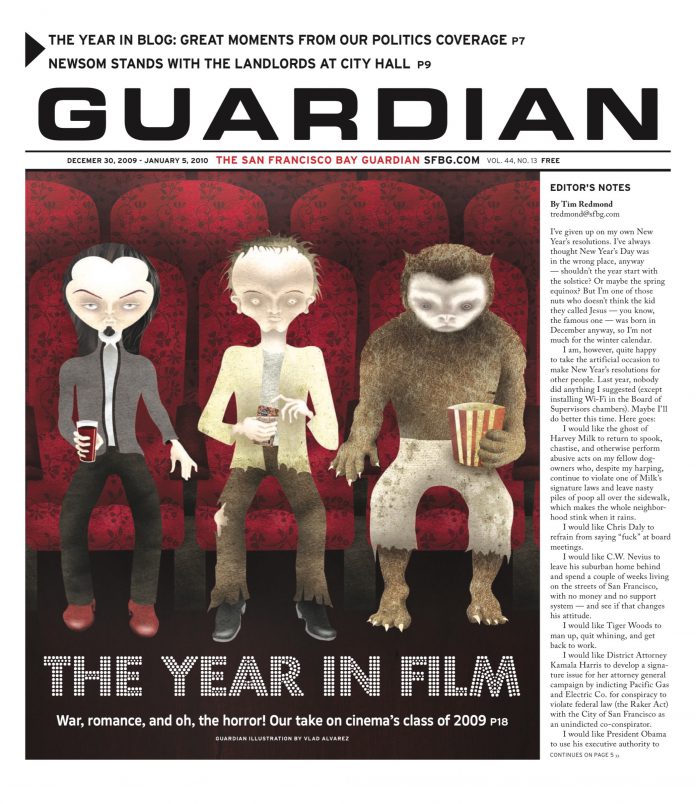YEAR IN FILM If 2008 was the year of the bromance, 2009 likely sounded its death knell. (The title alone of the March release I Love You, Man proves the genre blip has said everything it possibly could.) This can only mean one thing: confused hetero men-children have returned to their first loves, idealized pretty-girl ciphers who fulfill their wanton need to worship and be “understood.” This year in particular has seen a resurgence of those impossibly sensitive, crush-worthy romantic misfits. Sadly, as in the past, they usually spurn flesh-and-blood females for unattainable pseudo-goddesses.
Call it the Dobler effect, in honor of every indie girl’s sigh-inducing Valentino, Lloyd Dobler. The raw heart of Cameron Crowe’s gushy-earnest 1989 romantic dramedy, Say Anything, Lloyd (John Cusack) falls for Diane Court (Ione Skye), a brainy, humorless beauty who eventually succumbs to his potent weirdo charms. But Lloyd puts Diane on a pedestal so high it’s a wonder she can even hear his proclamations of undying devotion. For me at least, Say Anything has always posed a conundrum: if the awkward, goofball guys are all going for the gorgeous ice princesses (and getting them), who’s left for all of us — I mean, those — awkward, goofball gals?
At least Crowe made Diane a complex character in her own right, unlike Mark Webb’s creation of Summer in his clever yet ultimately trite breakout hit, (500) Days of Summer. Tom (Joseph Gordon-Levitt), his lovelorn protagonist, embarks on a love affair with Summer (Zooey Deschanel), a free-spirited, haughty, and (according to omniscient voice-over) spellbindingly hot woman who tears out Tom’s heart like so much ribbon from the mixtape of a hated ex.
While Tom decides his idealization of Summer is the product of insidious pop romanticism, that’s not entirely the case: Summer herself is its product. She simply transforms from the personification of Tom’s need to be needed to that of his need to be free of that need. (Did I mention Tom is pretty needy?) A disingenuous apparition, she’s as workshopped as any of the insipid, sentimental slogans Tom conjures at his day job for a greeting card company. Perhaps that’s the point, but it doesn’t make her, or rather the idea of her, any more palatable.
The movie may be emblematic of the Dobler effect, but 2009 did offer some light at the end of this tunnel of one-sided love. Released early in the year and largely overlooked, James Gray’s romantic drama Two Lovers offers a stinging rebuke of the Pedestal Girl in a way (500) Days of Summer only pretends to. But in terms of romantic trope blow-ups, Charlyne Yi in Paper Heart outdoes them all. A quasi-documentary love story, the film’s meta-conceit might be wobbly, but that doesn’t make its message any less refreshing. Yes, the weirdo goofball finally gets her man. It seems in 2009, we can finally chalk one up for all the real girls.

